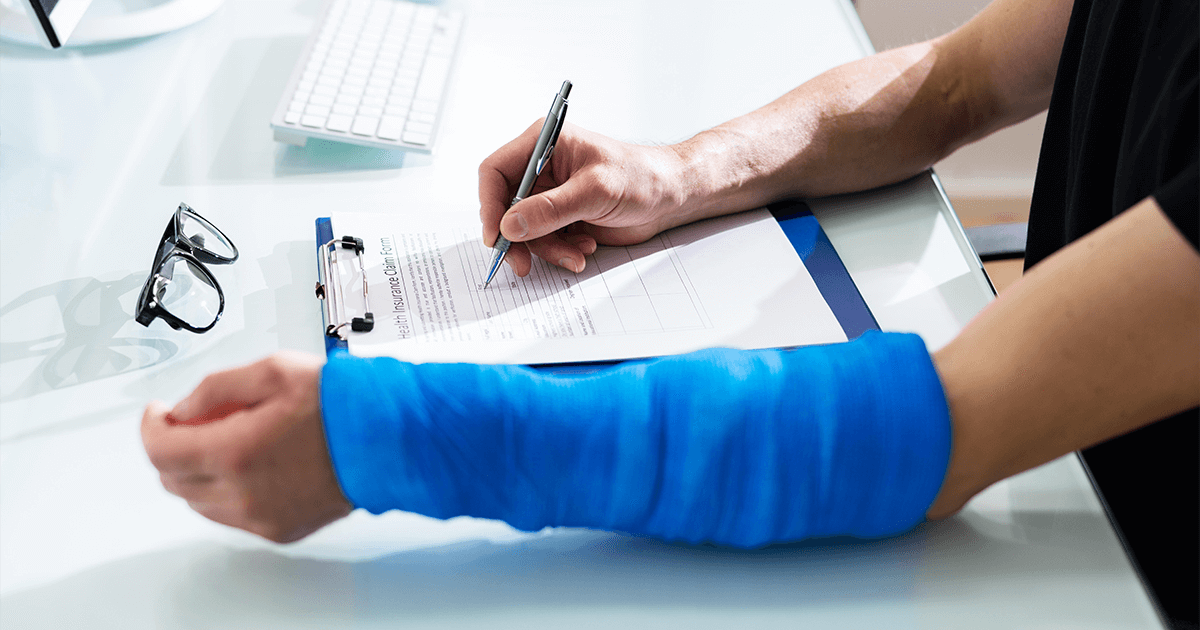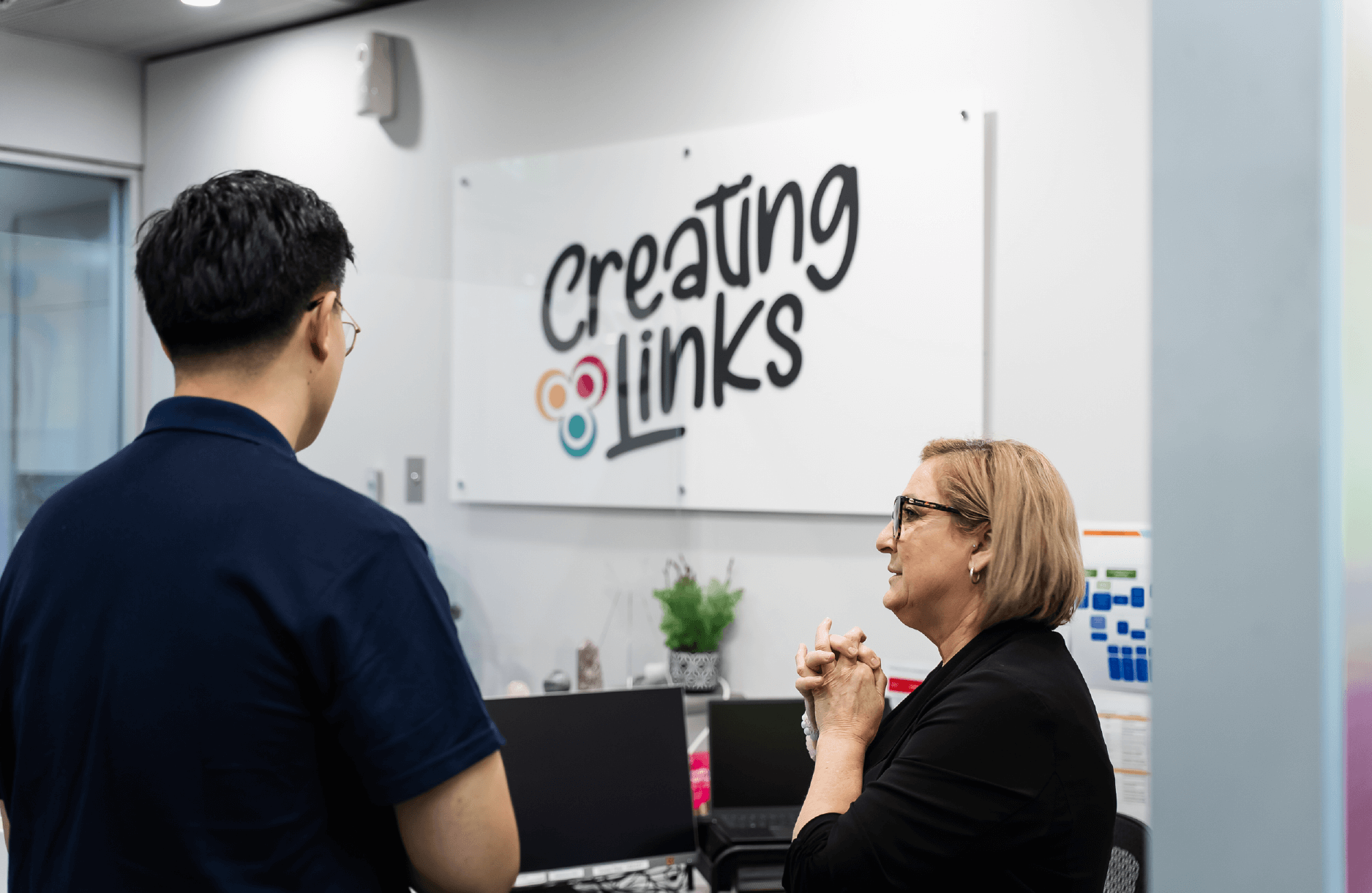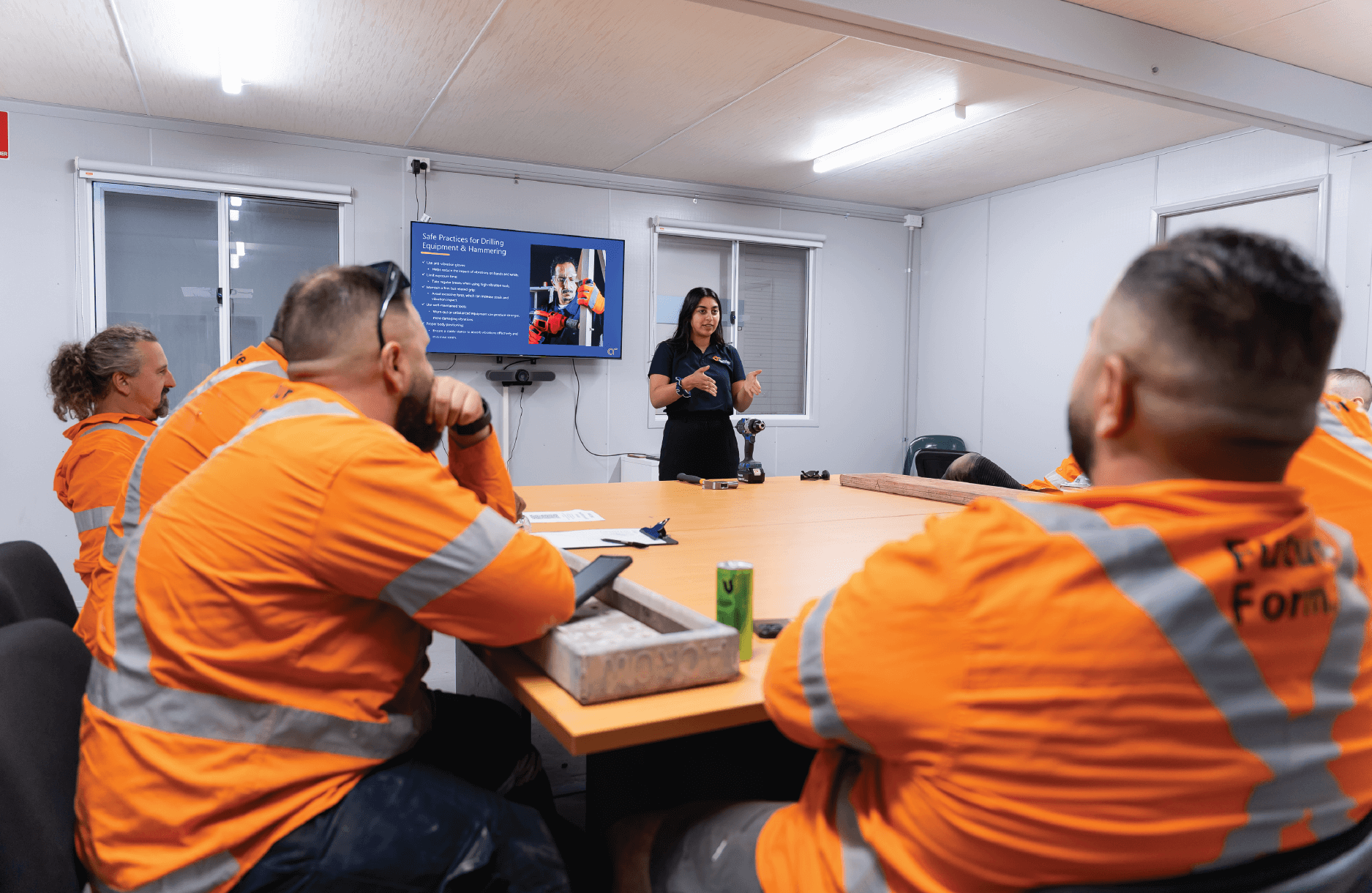Workplace injuries are stressful; understanding your rights shouldn’t be. This guide lists every workplace rehabilitation entitlement available through the NSW workers compensation scheme, so you can focus on recovery, not red tape.
1. Overview: What NSW Workers Compensation Covers
Getting injured at work is tough. But figuring out what you’re entitled to shouldn’t be.
The good news? If your injury happened at work or because of your job you may be eligible for fully funded workplace rehabilitation through the NSW workers compensation scheme. This can include:
- Medical treatment: WorkCover GPs, scans, physio and more, covered.
- Workplace rehab: A clear, personalised return-to-work plan.
- Mental health support: Counselling or psychology, fully funded.
- Ergonomic adjustments: Desk setups or task changes to keep you safe.
- Daily living support: Help at home with things like cooking or dressing.
- Vocational guidance: Training or placement support if you can’t return to your old role.
These services aren’t just helpful, they’re proven to make a real difference. According to Safe Work Australia, workers who access early rehab support are more likely to return to work within three months and less likely to experience long-term disability.
If you’ve been injured at work, it’s worth knowing what you’re entitled to. Read more below to find out how to access support and take the next step toward recovery.
1. Return to Work Support with Workplace Rehabilitation
If your injury happened at work or as a result of your job, you may be eligible for fully funded workplace rehabilitation through the NSW workers compensation scheme. Providers like AusRehab offer services such as:
| Rehab Service | Why It Matters |
| Worksite & ergonomic assessments | Identify hazards, recommend adjustments |
| Graduated return‑to‑work plans | Increase hours/duties at your pace |
| Functional capacity evaluations | Match abilities to job demands |
| Case conferences | Keep doctor, insurer & employer aligned |
| Vocational counselling | Explore new roles if pre‑injury job isn’t possible |
2. Medical & Treatment Support
If you’ve been injured at work, the first step is getting a Certificate of Capacity from your WorkerCover GP. This form explains your injury, your current ability to work, and what kind of treatment you need. It’s required to start your workers comp claim, and it’s fully covered.
Your treatment might include doctor visits, physiotherapy, imaging, medication, or other support. All of these can be funded through the NSW workers compensation scheme if your claim is accepted.
While your doctor manages your recovery, AusRehab works alongside them to make sure your treatment supports your return to work goals.
We work closely with:
- WorkCover GPs who understand the system: Provide informed care and accurate documentation to support your recovery and claims process.
- Physiotherapists and exercise physiologists: Help you rebuild strength, mobility, and endurance after an injury.
- Occupational therapists: Support you in regaining independence with daily activities and work-related tasks.
- Psychologists: Assist in managing work-related stress, trauma, or other mental health challenges during recovery.
Need a WorkCover GP fast? Browse our network and book in minutes.
3. Ergonomic & Worksite Assessments
Ergonomic assessments reduce risk and improve your safety when returning to work. We assess your workstation, seating, posture, and manual tasks, and recommend any needed modifications. This helps prevent re-injury and supports recovery. All ergonomic services are fully funded under workers comp.
If your job involves repetitive strain, desk work, lifting, or awkward postures, you may need:
- Sit-Stand Desks
- Ergonomic Chairs
- Workstation Adjustments
- Advice on Lifting, Reaching, or Tool Usage
We visit your worksite (or assess remotely) and give recommendations that keep you safe and productive.
4. Mental Health and Psychological Recovery
Not all injuries are visible. If work-related stress, trauma, or mental health issues contributed to your injury, you may be eligible for fully funded mental health support under the NSW workers compensation or CTP schemes.
With a valid Certificate of Capacity that recommends psychological treatment, AusRehab can help connect you with an experienced, SIRA-approved psychologist. We also work with your insurer to get treatment approved quickly so you can start getting the help you need without delay.
Support may include:
- Psychological counselling
- CBT (cognitive behavioural therapy)
- PTSD support
- Mental health planning to support your return to work
💡 Tip: If your stress is not work-related, your employer may still offer free short-term counselling through an Employee Assistance Program (EAP). It is confidential and worth checking if workers comp does not apply.
5. ADL Assessments
If your injury makes daily tasks like cooking, cleaning, laundry or getting dressed difficult, you might be eligible for a funded Activities of Daily Living (ADL) assessment through the NSW workers compensation scheme.
An occupational therapist will visit your home to see how your injury is affecting your ability to manage everyday tasks. They’ll write a report outlining what help or equipment you may need. If your insurer approves it, you could receive short-term support with things like cleaning, showering or grocery shopping.
If your injury affects how you move, lift, stand or manage at home, AusRehab can help by:
- Providing ADL Assessments to recommend home help or aids
- Submitting Reports to your insurer for approval
- Coordinating Services that support safety and independence at home
6. Vocational Support if You Can’t Return to Work
If you’re unable to return to your pre-injury job, vocational assessments help you transition into suitable new employment. AusRehab provides support through skill assessments, vocational goal setting, and identifying training or job placement options. We work with your insurer to align your goals with available support programs like SIRA’s JobCover or Work Trial initiatives.
If your previous role is no longer suitable due to your current capacity, we help you:
- Education and training assistance: Helps you gain new skills, licences, or qualifications if you can’t return to your pre-injury role.
- Help finding new job options: Supports you in identifying roles that match your current abilities and restrictions.
- Training or licensing through Education and Training Assistance: Covers the cost of courses or certifications needed for a new, suitable job.
- Resume support and interview prep: Prepares you to re-enter the workforce with confidence after time away due to injury.
- A Work Trial: Gives you the chance to try a new job with a host employer for up to 12 weeks without affecting your benefits.
- JobCover Placement Program (JCPP): Offers wage subsidies to employers who provide you with ongoing paid work after injury.
All support is built around what you can do now, with a focus on sustainable employment.
How to Access These Benefits
- Report the injury to your employer within 24 hours if possible.
- Visit a WorkCover GP for a Certificate of Capacity (Need help finding one? Browse our network)
- Lodge a workers comp claim. Your employer should notify the insurer, but you can also lodge it yourself if needed.
- Choose a rehab provider (you have the right to nominate AusRehab).
- Collaborate on your Injury Management & Return‑to‑Work Plan.
Need help? Call AusRehab on 1300 391 947 or request a callback.
FAQs
Do I have to pay anything out of pocket?
For approved treatment and rehabilitation, most providers send their invoices directly to the insurer, so you typically don’t have to pay a gap fee.
How it works:
- Direct billing: WorkCover GPs, physios, and other approved providers bill the insurer directly.
- No gap fees: If your treatment is approved, you usually won’t be charged out of pocket.
- Prior approval: Some treatments, especially longer-term or specialised care, may need the insurer’s approval first.
- Exceptions: Some services like massage therapy might need prior agreement or may only be covered if delivered by an approved provider.
To learn more, read icare NSW – Fees, Payment, and Processing for GPs and Treating Doctors.
Is mental‑health support really covered?
To qualify, your psychological injury must:
- Be a diagnosed mental health condition (such as anxiety, depression, or PTSD) — general terms like “stress” are not sufficient.
- Be directly caused by your employment, with work being the main contributing factor.
- Be supported by a Certificate of Capacity from your treating doctor, detailing the diagnosis and recommended treatment.
For more information, visit the official icare NSW Psychological Injury Claims page
What if the insurer rejects a service?
Seek independent advice: You can speak to a workers compensation lawyer or contact the Independent Review Office (IRO) for free advice and support.
Dispute the decision: If you’re not happy with the insurer’s decision after a review, you can apply to the Personal Injury Commission (PIC) to help resolve the dispute.
You deserve to feel supported during your recovery and there are teams ready to help if something’s not working as it should.
Not Sure What You’re Eligible For?
We’ve built a quick, confidential 2-minute quiz to help you figure out what kind of support you could get through workers compensation. It helps you figure out what kind of support you might be able to access based on where you’re at.
No complicated language, no stress. Just clear information to help you take the next step.
Start Your Recovery the Right Way
At AusRehab, we believe workplace injury recovery is more than just getting back to work. It’s about feeling confident, supported and capable, at work and at home. We believe workplace rehab is about more than just getting back to work. It’s about helping you recover fully, feel confident and move forward safely.
Whether your injury is physical, psychological or both, we provide the support and services you need to recover with confidence.
📞 1300 391 947
📧 office@ausrehab.com
👉Contact us
Let’s build safer, healthier, and more productive work environments, one recovery at a time.






